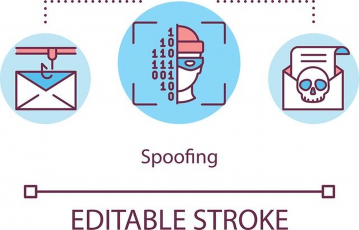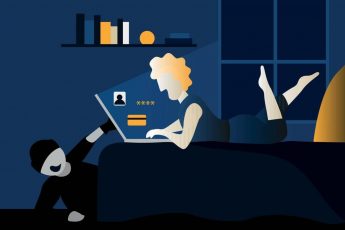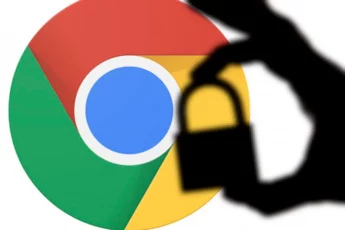While that you have reached this article, you would probably know what is an IP address and why you need to hide or change your IP country. But even if you don’t, no worries, this article explains it all for you.
But before we move on, assure yourself of one thing. Changing your IP address isn’t an online luxury, rather your due right and a necessity for your privacy.
The online world is full of cybercriminals who keep looking for ways to prey on you.
Likewise, the annoying advertisers are also always on the search for your details to track what you like, so that they can barrage you with ads.
And, of course, you don’t want every snooper or perpetrator to keep eyes on your online activities, do you?
That’s where you need to change the IP address country! But before we get to it, let’s cover some basics you must know.
Tweaking your Internet Protocol address – The quick guide
Rushed? Here is how to change your IP country quickly:
- Sign up for a reliable VPN, our privacy experts, or cybersecurity researchers (including me) all recommend ExpressVPN to be the best VPN for the cause (for multiple reasons).
- Install the VPN’s app, if you went with ExpressVPN, it has an app for all the known devices which makes it very easy for you to get going.
- Connect to a server available in the country of whom you want to get the IP address (for example, if you need a US IP outside it, you may connect to a US VPN server).
- That is it, once connected to the selected VPN server, your country IP should already be changed.
How does an IP address work?
Just like your physical address that leads anyone to your home, you also have an online address. The internet labels it as your IP address.
In technical terms, your IP address is a distinct number assigned to your device as an online identifier.
Whether it is your mobile phone, your laptop, or any other device you access the internet, every device has a unique IP address that it receives from your Internet Service Provider (ISP).
The IP address isn’t just a random number; rather, it encloses a lot more details.
Through this single resource, anyone can know about your device, network information, browsing habits, as well as your exact physical location.
Whenever your device connects to the internet, this IP address is what the websites, advertisers, government authorities, and other online entities track about you.
But, if you know how to change the public IP address of your device, you may easily ditch all these trackers.
Similarly, your IP address also lets the content providers decide their target audience.
That is why you see different kinds of news on the internet from different places.
Likewise, you may not access BBC iPlayer outside the United Kingdom because the service provider tracks your location via IP address.
However, if you effectively change your IP to another country, you can bypass geo-restrictions and enjoy the freedom of browsing.
Reasons to change your IP address
Your IP address reveals not only your location but also a lot more details.
Perhaps, you cannot even imagine the extent of information you unknowingly disclose online through your IP.

In short, your privacy and security are always at risk when your true IP is visible online.
So, it makes complete sense to mask or hide your IP address and protect yourself.
But if you wonder why exactly you or anyone else should do that, then here are a few important reasons.
1. Browse websites anonymously
Ever wondered why you start seeing ads for products you bought or viewed right after you leave an e-store?
Or why do you see ads related to your purchases on your Facebook Newsfeed? This is because the websites track you!

Courtesy of advanced cookies tracking that businesses deploy today while visiting a website, you get information from that site and share yours with them.
Almost every website has certain tracking elements that keep chasing you as you browse online. These trackers prey on your IP address through which they get information about your device, location, network, and other devices connected to your network.
All this data suffices to let them have enough information about you. They can then use this data to show you relevant ads (whether you wish to view them or not).
Sometimes, these trackers are so robust that the websites you visit don’t let you in unless you turn off your ad-blocker. Ultimately, you are compelled to share your data with them.
Of course, you can’t stop the other side from spying on you.
But, you can fake your online profile. Hence, the only viable solution for this tracking is to change IP address country.
When the websites can’t track your real IP, they can’t know your country, your device, and other data.
In turn, you can enjoy anonymous browsing without having to worry about any online trackers.
2. Limit search engines from tracking your browsing history
For most of you, to ‘Google’ something is the easiest option to find anything or anyone.
But only a few people would realize that this seemingly harmless activity also shares your own data with Google.

In fact, it is not about Google only. Rather almost every search engine also loves to track what you do online.
These common search engines like Google and Bing build a profile of yourself based on your browsing habits.
They then use this data to adjust your search results for accuracy and ad targeting. Of course, they link all this data to your IP address and place cookies on your device.
If you don’t want these search engines to track you, then delete cookies from your device and spoof IP address.
Though, we recommend using private search engines instead of Google and alike to eliminate this tracking issue for good. These search engines, like DuckDuckGo, respect your privacy.
3. Access content blocked at your place
Most schools block social media platforms and homework help websites to avoid distractions for students.

Likewise, employers also block social media like Facebook at the workplace to restrict employees from wasting time.
Some organizations doing sensitive work also block such platforms to avoid any sort of information leak.
While that is all rational to do, you may not always like such restrictions. (At least I don’t want myself to be restricted like this).
So, once again, you have a workaround for unblocking websites: to change your IP address.
Since the content restrictions are applied to the IP address assigned by the relevant place’s network, once you spoof it for your device, you can bypass all such restrictions.
4. Bypass content geo-restrictions
Content restrictions based on location are another annoying thing in the online world.
Sometimes, the content providers restrict their audience to a specified location. Such as, BBC iPlayer isn’t available outside the UK.
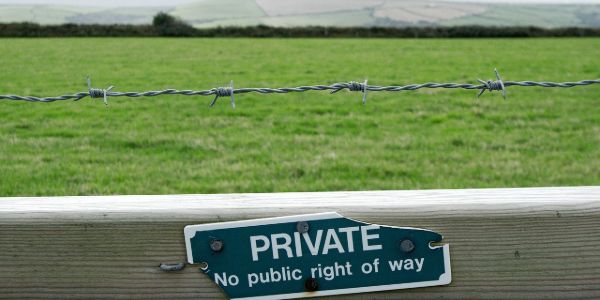
Whereas, in most cases, the government authorities block various websites to limit their people from accessing certain information. This can be done to achieve various political or ethical gains. Anyhow, that’s not a part of our discussion.
What’s our point is that we, as free humans, reserve the right of freedom of online browsing (ethically).
So, if you are fed up with such geo-restrictions, know how to change the country’s IP to another one. This will lift any content blocking from you since your online location would appear differently from where you are present.
5. Use Netflix and other streaming services anywhere
Ever missed watching BBC iPlayer when you’re abroad? Can’t watch your favorite Netflix show just because you traveled to another country?
Then you surely need to change your IP address to a different country.

Streaming platforms such as Netflix often have various geo-restrictions enabled on the content they show. This can either be a requirement from the media studios, or they have to block certain content in a region based on the media policies of that country.
Either way, it is you, the user, who suffers.
These services track your IP address to know your location and apply content restrictions.
So, as a workaround, simply change the IP country of your device to the one where the content you want to access is available.
Doing so would change your online location, and you will be able to unblock Netflix USA and other similar as they won’t be able to track your exact location. Hence, you could continue to enjoy your favorite shows no matter where you are.
6. Evade government tracking and eavesdropping
Apart from content censorship, government authorities also frequently eavesdrop on you.
Although, the extent of this eavesdropping may be different.
Some countries like China and Iran are known for their extremely strict citizen tracking. Whereas the USA also frequently eavesdrop on users via their NSA.
Likewise, the government authorities in other countries also keep a check on their users’ online activities, whether they publicly disclose it or not.
These authorities precisely track your IP address to see what you do online. While that’s bad, what’s terrible and somewhat dangerous is the way the countries share citizen’s data.
Today, massive spying alliances, such as 5 Eyes and 9 Eyes, have made data sharing among the countries way easier.
Although that’s needed to contain criminal activities, this is also a breach of privacy of common users.
However, if you know how to get a new IP address for your device, you can easily evade such eavesdropping.
7. Prevent your ISP from tracking You
Whether you use a private search engine, frequently clear your browsing history, or do anything to prevent online tracking, there is one such resource that constantly keeps track of you. That is your Internet Service Provider (or the ISP).
Your ISP has control of everything you do online. They log all your activities, even the browsing activity in incognito mode.
They then keep them saved and even share them with law enforcement and government authorities as and when needed.
While you can’t stop them from spying on you, you can certainly protect yourself by masking your public IP. Your ISP would only be able to track you if you continue to browse with the IP address they provide.
But, if you get a fake country IP address, especially with a VPN that also encrypts your data, your ISP won’t know anything about your online activities.
8. Stay out of the radar of hackers
Changing the IP address isn’t just required to protect your privacy but your security too.
Like websites and government authorities, criminal hackers are always on the lookout for your online information.

In fact, they actually wait to spot your weaknesses, whether it is about the vulnerabilities in your device security system or your personal life.
Once they get a hint of your weak spot, they don’t waste a minute preying on you. They can then achieve long-term benefits, including financial gains from you.
From cyberbullying and identity theft to malware and ransomware attacks, you can’t even imagine the extent of threats you are exposed to while surfing online.
But you can certainly fend off all such threats simply by changing your IP.
As most black hat hackers trace your IP address to build your profile, changing this important detail makes them lose your track.
They can’t link the false IP address to you or your device; hence, you remain safe. (Pretty simple!)
9. Safely use public WiFi
Public WiFis are a wonderful source to let you stay online always. Most of these are free to use, which is why they attract many users.
However, these public WiFi networks also serve as a safe haven for hackers since they can target multiple users.
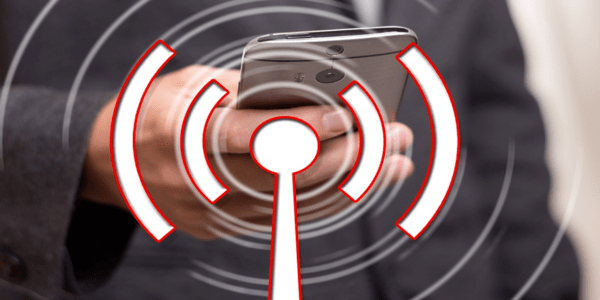
These WiFi networks are usually unsafe for performing sensitive activities, such as financial transactions.
However, since most users are unaware of it, they continue to browse online and log in to different accounts.
Thus, the hackers present on the network intercept your data transmitted online. They cannot only steal important information but also cause financial damages.
Like always, these perpetrators prey on your IP address to reach your device.
Hence, when you hide or change IP addresses, the hackers won’t be able to trace your device through false IP. And so you can browse safely.
For enhanced online protection, you can use a VPN that masks your IP address and encrypts all your data.
10. Enjoy the freedom of browsing
Last but the most important reason to change IP location is to enjoy your right to internet freedom.

When you change your IP, you prevent all prying eyes from logging your online activities.
Be it the advertisers, web trackers, or cyber criminals, you can stay under the radar if you portray a false location online.
When someone can’t trace your real IP address, they can’t link it back to your device. That’s how you remain safe to enjoy a free online experience.
4 methods to change IP country easily
Although, you may not change your physical address as frequently as you want. Except for a regular to and fro between your workplace and your home, you cannot really move your location all the time.
Fortunately, that is not the case with your internet address. You can, in fact, change IP location of your device as many times as you want.
You can even change the IP address country and bluff all online trackers. Here we list the most effective methods for it.
1. Use a VPN
A Virtual Private Network, or simply the VPN, is one of the most viable methods to change the IP addresses to another country.
Talking about the pros of VPNs, Besides masking your IP, a VPN also encrypts all your data being transmitted from your device.
Thus, you can rest assured that nobody can view or track what you do online even after intercepting your network.
Moreover, VPNs also provide a range of different IP addresses from across the world. Therefore, you are free to choose any location depending upon the kind of content you want access to.
For example, if you want access to BBC iPlayer, simply choose a UK server through your VPN, and that’s it.
Likewise, you can enjoy the contents from Netflix USA from any part of the world simply by choosing a USA server.

However, not every VPN may work well with streaming services like Netflix.
In fact, Netflix frequently blocks VPNs, making it difficult for users to access.
So, you should make sure that you use a robust VPN that evades Netflix blocking.
We recommend ExpressVPN. Installing it is also quite easy. It has a neat interface suitable even for an average user. Also, it supports multiple operating systems, including Windows, macOS, Android, iOS, and Linux.
Yet, before installing any VPN, make sure to go through their system requirements.
Also, take a look at their Terms and Conditions and Privacy Policy, especially if you are concerned about data logging.
The only downside of using a VPN is that most good VPNs are paid ones.
However, if you are merely looking for a VPN to change the IP address to a different country and have no problem with its average services or data logging, you can find some free VPNs here.
If you haven’t previously heard about VPNs or haven’t used one yet, feel free to read our Ultimate Guide to VPN for Beginners.
Benefits you get:
- Wide range of locations to choose your IP from.
- Multiple IP addresses globally.
- Encrypted data transmission.
- Fast upload and download.
2. Use Tor Browser
Another smart option to change IP address without hassle is to simply change your browser to the Tor browser.
From the makers of Mozilla Firefox, The Onion Router or TOR browser is powered by the TOR technology initially developed for the US military. So, you can imagine the level of safety and privacy this browser offers for the users.
Simply put, Tor masks your IP address, encrypts your data, and provides you with an anonymous browsing experience.
However, these features come with the downsides of slow browsing speeds. Hence, it isn’t wise to use Tor for video streaming.

A major problem with Tor is that it is a direct opening to the dark web – a hub for cybercriminals. That’s why law enforcement and ISPs actively track Tor users.
So, unless you are a privacy freak or an emerging hacker (must be a white hat), you should better drop the idea of using Tor. Instead, you may use a VPN.
Benefits you get:
- IP masking.
- Free to use.
- Onion encryption.
3. Use a Smart DNS
Like VPNs, you can also use a Smart DNS to change IP to Canada, the US, or any country you want. Apart from IP masking, it also offers fast browsing speed, making it perfect for streaming.
However, this fast speed isn’t so advantageous because Smart DNS does not support data encryption. Therefore, whatever data your device transmits over the network remains visible.
That means anyone intercepting your network can reach out to you despite a false IP address.
Hence, you can use a Smart DNS if you merely need to change your IP address without affecting speed. But, if you’re concerned with privacy and data security, use a VPN.
Moreover, if you plan to mask your IP address across multiple devices, using a VPN is still better than Smart DNS.
Another problem with Smart DNS comes for Netflix users. As we mentioned above, Netflix frequently blocks fake IP addresses. So, like most VPNs, it also blocks Smart DNS IPs.
Thus, if you want a great Netflix experience, I highly recommend using ExpressVPN only.
Benefits you get:
- IP masking.
- Fast upload and download speeds.
4. Use Web Proxy
If you are not willing to pay for a VPN or simply wish to temporarily switch IP location on your device, use a web proxy.
A free web proxy also masks your IP address, just like a VPN. Moreover, it also lets you choose your desired country, similar to a VPN.
However, it lags behind a VPN because it does not encrypt your data – like a Smart DNS.
It means using a web proxy is just a quick option to change your online location and bypass content restriction. The websites you visit might not directly link your IP with your device.
However, using a web proxy doesn’t make you entirely anonymous. And, someone tracking your data (which remains unencrypted) can still figure out your browsing activities.
Moreover, not every web proxy service efficiently masks your IP address. Some robust websites can still restrict you from accessing their content if they detect your false IP address.
Benefits you get:
- Faking IP address.
What is the best method to get a fake country IP?
In the section above, I have shared with you the top four methods to change the IP address to any country you wish.
However, if you ask “how to change the IP address on a phone, laptop, or any other device,” a VPN remains the best option.
This is because a good VPN changes your real IP address and offers tremendous privacy features.
I use ExpressVPN to change my IP country whenever I want to access content from other parts of the world.
Despite data encryption, ExpressVPN never lags in speed, so it works seamlessly for me.
Also, ExpressVPN’s no-logging policy is desirable for all users who do not wish their online activities to be logged by anyone.
Plus, at present, ExpressVPN is one of the very few VPNs that still combat Netflix blocking easily.
They have employed various measures to bluff Netflix and other popular streaming services’ IP detection.
Also, their huge network makes it way easier for them to continue uninterrupted services for users.
How to change your IP address in Windows 10
Changing your IP address doesn’t always require using a dedicated tool like VPN. Sometimes, you have to change your IP address manually.
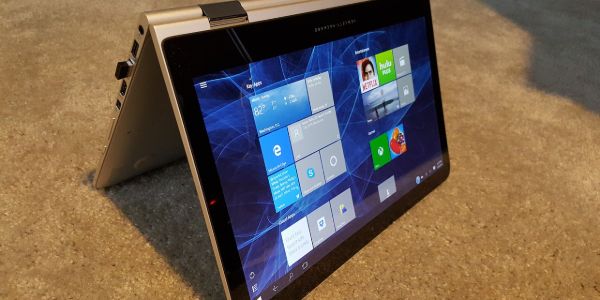
Especially, large organizations that predominantly use Windows systems frequently require their employees to change IP addresses for various reasons.
For example, organizations may do so when they suffer IP blacklisting after mass emailing.
So, for all Windows 10 users, here we quickly explain how to change the IP address in Windows 10.
- On the bottom-right of your screen, right-click on the internet icon of your Windows computer.
- Click on ‘Open Network & Internet Settings’.
- Scroll down your screen and click on the ‘Network and Sharing Center.’
- Now click on your internet connection, and then click on the ‘Properties’ button at the bottom.
- On the new pop-up window, click on the ‘Internet Protocol Version 4 (TCP/IP v4)’ option and again click on ‘Properties’. You can also get to the ‘Properties’ window by a double-click on the IPv4 option.
- Enter the desired IP address, the Subnet Mask, and Default Gateway details (if required).
- Click ‘OK.’
And this it. You are now connected to the internet with the new IP address.
Way to change your router IP
Before wondering how to change the router’s IP address, let’s see how it works and why you should change its IP.
A router is a dedicated networking device that connects one or more devices to the internet. Most good routers support up to 5-10 devices at a time.
To manage these many connections, the router bears a public IP address, whilst all connected devices receive private IP addresses.
So, whenever you connect to the internet with a router, all your devices appear online with the public IP address.
For example, if you connect your laptop and your mobile phone to the internet via your router, both the devices will have the same IP address. (To check this, simply type “my IP” in the search bar of your device’s browser. You will see your public IP address.)
Hence, if you wish to browse anonymously while connected to a router, you need to change the router’s IP address.
Here I list two different methods to change router IP.
Method 1: Restart your router
Most ISPs assign dynamic IP addresses. Hence, you can change your router’s IP address by turning it off for a minute and then turning it back on.
However, since the DHCP usually remembers the device, it may assign the same IP address to the router again.
In such cases, you should either try to restart your router multiple times.
Or, you may leave the router turned off overnight. The next morning, your router will likely have a new IP address.
Method 2: Reconnect to ISP via the router admin portal
If you are familiar with your router’s admin dashboard, then try this method to change the IP address.
Simply log in to your router’s admin panel. Disconnect it from the upstream ISP and then reconnect. You will now get a new public IP address.
Most vendors offer this option, though the UI may be different. So, if you know your router’s admin panel, you will easily find the reconnect button.
The home truth: You cannot completely hide IP from your ISP
Your Internet Service Provider naturally (and technically) has a complete hold on your online activities.
Of course, when you are using their resources, they would keep an eye on whether or not you are doing anything that goes against their policies.
While that’s an apparent truth, there also are various other reasons for them to spy on you. These include government orders, obligations from law enforcement, technical requirements, and many more.
Therefore, your ISP can still track you regardless of your efforts to learn how to change country IP. Since they know your real IP address, they can link your online activities, including your private browsing.
Nonetheless, you still have one such method that serves as a barrier between you and your ISP – a VPN.
But, not every VPN is as efficient in blanketing you. Many VPNs continue to leak IP addresses via DNS. Some leak your IP address upon disconnection.
However, ExpressVPN is such a service that ensures foolproof protection.
At first, it encrypts all your data before it leaves your device.
Hence, even if your ISP knows that your device is generating data, it cannot meddle with ExpressVPN’s military-grade encryption. Thus, you can enjoy anonymous browsing while ditching your ISP.
Final thoughts
Here we wrap up our discussion regarding the best methods to change IP address on any device. I would like to reiterate that as a free internet user, changing the IP address is your due right. Masking your IP is an effective strategy to protect your privacy and achieve online security.
Depending on your requirements and preferences, you can use any of the options we discussed above.
Though, the king of all options is using a robust VPN like ExpressVPN. It warrants the utmost privacy with its range of IP addresses and servers and data encryption.
Nonetheless, to temporarily change your IP address country, you can use Smart DNS or a web proxy.
Do share with us which of these country IP changing methods you prefer for yourself. Also, if you think we missed anything that should be there in our article, feel free to share it with us.
